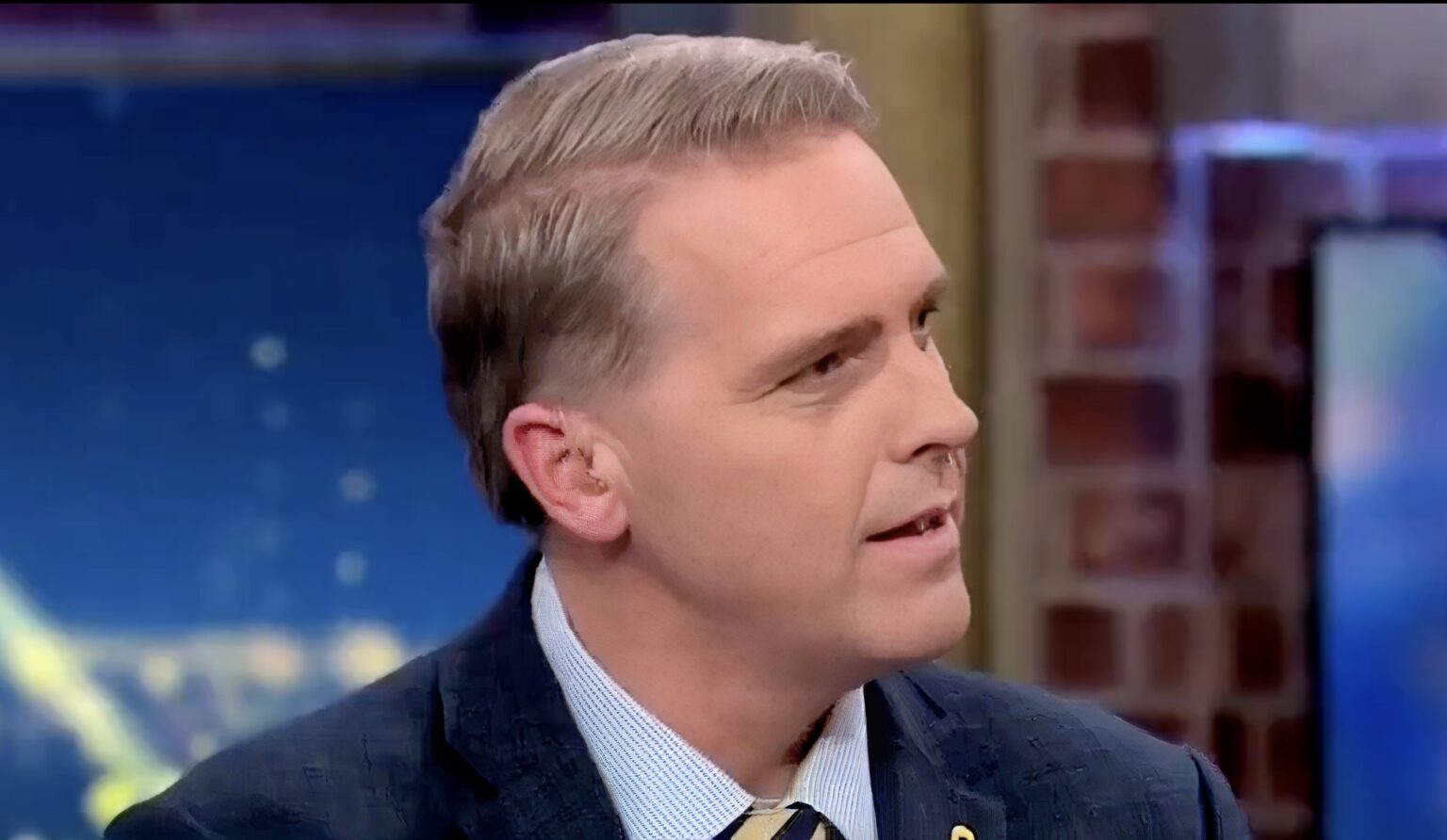Scott Jennings, known as CNN’s sole conservative voice, recently made headlines during a panel discussion by openly mocking the left’s persistent narrative that Donald Trump represents a fascist threat, likening him to “literal Hitler.” His remarks came in response to the news that key figures from the liberal media, specifically MSNBC’s Joe Scarborough and Mika Brzezinski, had met with Trump shortly after they had expressed vehement criticism of him. These interactions seemed to contradict their earlier claims about Trump’s dangerous authoritarian tendencies, raising questions about the sincerity of their rhetoric. Jennings used this opportunity to highlight what he perceives as a double standard among liberals when it comes to their portrayal of Trump and their actual willingness to engage with him.
In his comments on “CNN NewsNight,” Jennings called attention to the contradiction inherent in both Scarborough and Brzezinski’s meetings with Trump, suggesting that their actions undermine the gravity of their previous statements. “I’m amazed. I did not expect Hitler to get so many meeting requests,” Jennings quipped, underscoring the absurdity of labeling Trump as a dictator while simultaneously seeking to engage with him. He emphasized that such meetings further demonstrated a disconnected approach from the political reality espoused by prominent Democratic figures, effectively challenging the credibility of their allegations that Trump posed an existential threat to democracy.
Jennings proceeded to argue that the rhetoric surrounding Trump as a fascist and authoritarian leader was a fabrication meant to stir up fear among Democratic voters. He asserted that the inflammatory comparisons made by the left, which included allusions to Hitler and Nazi rallies, were merely political strategies devoid of substantive truth. His commentary suggested that the use of such extreme language was not an honest reflection of Trump’s presidency but rather an exaggeration designed to incite outrage and galvanize support against him, ultimately leading to what Jennings described as a betrayal of Democratic voters.
This perspective presented by Jennings raises important questions about political discourse in the current climate, particularly concerning the ethical responsibility of political commentators and media figures. His critique suggests that when those in influential positions engage in hyperbolic rhetoric, it can distort the public’s understanding of political figures and issues, leading to diminished trust in the media. By challenging the liberal establishment’s narrative, Jennings aims to shed light on the inconsistencies that can arise when political officials veer too far into alarmist territory, particularly when their actions do not align with their words.
Moreover, Jennings’s remarks came against the backdrop of broader discussions about the efficacy of political labeling and its ramifications on bipartisan relations. The willingness of figures like Joe Scarborough and Mika Brzezinski to court Trump after months of condemnation highlights a complex dynamic that exists within American politics—where the lines between opposition and collaboration often blur. This paradigm invites a reevaluation of strategies employed by both parties and raises critical inquiries about the future of political communication, especially as it pertains to fostering civil discourse in a deeply polarized environment.
Ultimately, Jennings’s commentary on CNN serves as a thought-provoking critique of not just the portrayal of Trump by the left, but the entire framework of political rhetoric in contemporary America. His insistence that the narratives presented by liberal media figures are not only exaggerated but potentially deceptive invites viewers to reconsider the validity of politically charged labels and their implications. By confronting this narrative head-on, Jennings underscores a crucial moment for political dialogue, urging a more nuanced and honest engagement with differing viewpoints.

